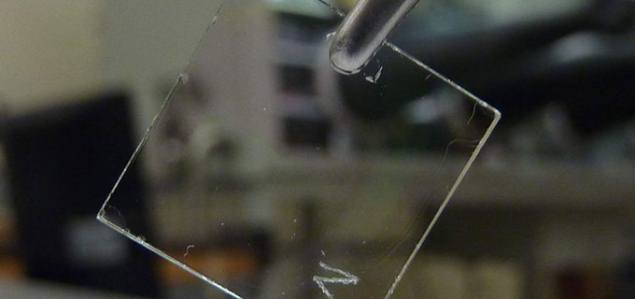Researchers develop world's cheapest and fastest thin-film organic transistors

This new technology has the potential to achieve the high performance needed for high-resolution TV screens and similar electronic devices in an inexpensive way, said the researchers.
Engineers from University of Nebraska-Lincoln (UNL) and Stanford University created thin-film organic transistors that could operate more than five times faster than previous examples of this experimental technology.
The team led by Zhenan Bao, professor of chemical engineering at Stanford, and Jinsong Huang, assistant professor of mechanical and materials engineering at UNL, used the process to make cheaper organic thin-film transistors with electronic characteristics comparable to those found in expensive, curved-screen TV displays based on silicon technology.
They achieved the speed boost by altering the basic process for making thin film organic transistors, said the study published in the journal Nature Communications.
The researchers called this improved method 'off-centre spin coating'.
Even at this initial stage, 'off-centre spin coating' produced transistors with a range of speeds far above those of previous organic semiconductors and comparable to the performance of the polysilicon materials used in today's high-end electronics, claimed the study.
Further improvements to this experimental process could lead to the development of inexpensive, high-performance electronics built on transparent substrates such as glass and, eventually, clear and flexible plastics, the study said.Catch the latest from the Consumer Electronics Show on Gadgets 360, at our CES 2026 hub.
Related Stories
- Samsung Galaxy Unpacked 2025
- ChatGPT
- Redmi Note 14 Pro+
- iPhone 16
- Apple Vision Pro
- Oneplus 12
- OnePlus Nord CE 3 Lite 5G
- iPhone 13
- Xiaomi 14 Pro
- Oppo Find N3
- Tecno Spark Go (2023)
- Realme V30
- Best Phones Under 25000
- Samsung Galaxy S24 Series
- Cryptocurrency
- iQoo 12
- Samsung Galaxy S24 Ultra
- Giottus
- Samsung Galaxy Z Flip 5
- Apple 'Scary Fast'
- Housefull 5
- GoPro Hero 12 Black Review
- Invincible Season 2
- JioGlass
- HD Ready TV
- Laptop Under 50000
- Smartwatch Under 10000
- Latest Mobile Phones
- Compare Phones
- Tecno Spark Go 3
- iQOO Z11 Turbo
- OPPO A6c
- Samsung Galaxy A07 5G
- Vivo Y500i
- OnePlus Turbo 6V
- OnePlus Turbo 6
- Itel Zeno 20 Max
- Lenovo Yoga Slim 7x (2025)
- Lenovo Yoga Slim 7a
- Lenovo Idea Tab Plus
- Realme Pad 3
- Garmin Quatix 8 Pro
- NoiseFit Pro 6R
- Haier H5E Series
- Acerpure Nitro Z Series 100-inch QLED TV
- Asus ROG Ally
- Nintendo Switch Lite
- Haier 1.6 Ton 5 Star Inverter Split AC (HSU19G-MZAID5BN-INV)
- Haier 1.6 Ton 5 Star Inverter Split AC (HSU19G-MZAIM5BN-INV)

















